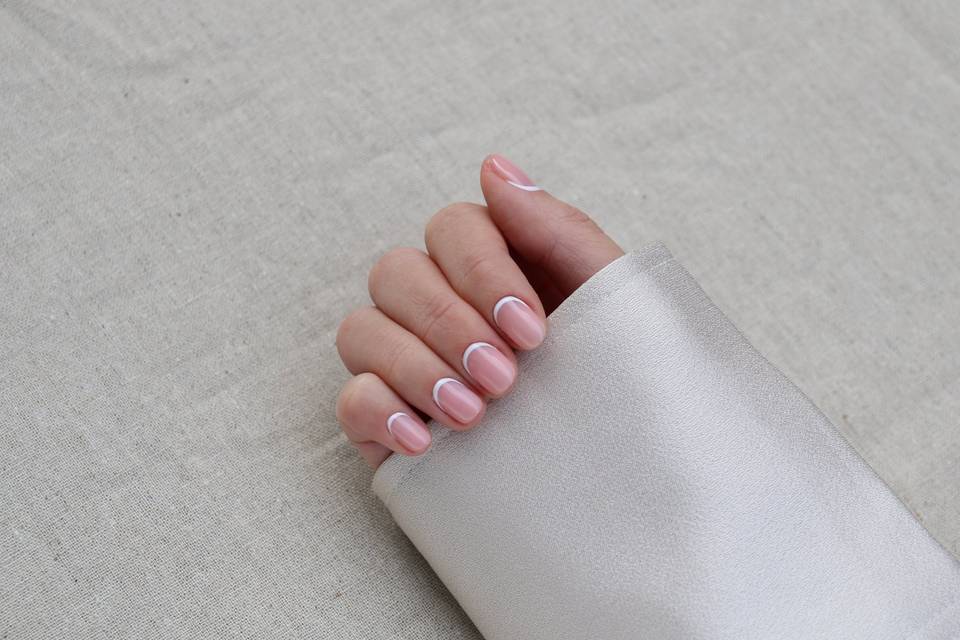Why It’s Okay to Feel Sad About Postponing Your Wedding: How to Cope if You’re Feeling Heartbroken
Due to the coronavirus outbreak, thousands of couples have had to postpone their wedding days. If you’re heartbroken, you’re definitely not alone, but there are some useful things you can do to help you navigate the disappointment.
We have included third party products to help you navigate and enjoy life’s biggest moments. Purchases made through links on this page may earn us a commission.


If you were planning a wedding this year, chances are you’re dealing with a wave of stress and worry right now.
Thanks to Coronavirus, thousands of couples have had to postpone their wedding days, and as if the emotions of living through a global pandemic weren’t enough to process, you’re now trying to reconcile the way that the happiest day of your life has now somehow become a source of sadness and disappointment.
The important thing to remember is you’re not alone. Read on as we explain why it’s ok to feel sad and expert advice on how to cope.
Why It’s Okay To Feel Sad About Postponing Your Wedding
First, let us say that if this has happened to you, our hearts go out to you, and you’re perfectly entitled to feel dumbfounded, bewildered and frankly, more than a little broken by this chain of events. ‘A wedding is a significant life event that connects two people (hopefully) for life. It is not stress free!’ says relationship therapist Dr Kalanit Ben-Ari, the counsellor behind the Ready For Love online course.
‘There is an emotional process as well as a lot of organisation involved in the planning of this big event, which can be very overwhelming. In many cases it also includes managing family members’ expectations and needs, managing budget and finance, dealing with other people’s emotional reactions to certain details, family dynamics, tensions between the couple, and much more.
‘When you organise a wedding, the date itself is like an anchor for this emotional rollercoaster. With the emotional build up, planning, and in many cases financial implications, having to then postpone and re-plan is a lot to handle.’

‘Since the 1960s, psychological research has rated the major life events that trigger the most stress as moving home, getting divorced, the death of a loved one, and getting married,’ agrees chartered psychologist Dr Audrey Tang, author of The Leader’s Guide to Resilience, which will be published later this year.
‘With regards to getting married, especially at a late stage of postponement, there are a number of elements which need to be managed: telling guests, venue and other supplier bookings, deposits that have been paid out, honeymoon bookings – the list really is endless.’
‘Sometimes there are deeper psychological needs surrounding the choice of date that you may also need to address – perhaps it was important because of guests you wanted to have present, perhaps it is timed because of a birth. Those elements cannot be easily “changed” when a “new normal” resumes.’
‘And of course you will have looked forward to it. It’s like the feeling when we haven’t won the lottery yet, but in our minds we’ve spent the cheque.’

READ MORE: How to Tell Guests You’re Postponing Your Wedding
What to Do If You Feel Guilty for Feeling Sad about Your Wedding Being Postponed
A wedding is a huge life event, but with everything that’s going on in the world right now, if all your loved ones are healthy, you are still enormously lucky in many ways. When you’re struggling to cope with having to move your wedding, you might also find yourself feeling guilty for finding it hard to appreciate what you do have, and being unable to stop focusing on what you don’t.
‘The most important thing you can do is to accept that you are allowed to feel sad. It is a huge disappointment, and for yourself, it is important to appreciate that,’ Dr Tang explains. ‘It is common, however, to feel “with others dying I’m lucky to be alive” and of course, this may also be a message that others use – platitudes like “Oh you’ve still got your health” and the #firstworldproblems hashtag sometimes serve to trivialise what we are feeling.’

‘It must be noted that as a singular whole and valuable human being are allowed to feel sad – simply for yourself. When such comments or statements serve to invalidate those feelings, this can lead to bottling them up, which in turn can trigger more stress, anxiety and possibly even depression or other mental health issues.’
‘If you are posting about it on social media in order to generate sympathy, that is a different matter because there, consciously or not, you may be inviting opinion – but this is a very different situation and the goal is very different. For yourself, and your spouse-to-be, you are allowed to feel sad. In fact, this is where your teamwork and your personal union and connection, even without the wedding, has a chance to shine. Be there for each other.’
How to Cope with Having to Postpone Your Wedding
‘Be aware of your mind-set and inner dialogue,’ Dr Ben-Ari advises. ‘The nervous system reacts differently to certain thoughts. Your inner voice might be saying “this is a tragedy, I cannot handle this” or “OK it is not what I wanted, but now we have more time to plan”. You do not have control over lockdown or the coronavirus itself, but you do have the ability to control your reaction to the situation and adjust your mind-set.’
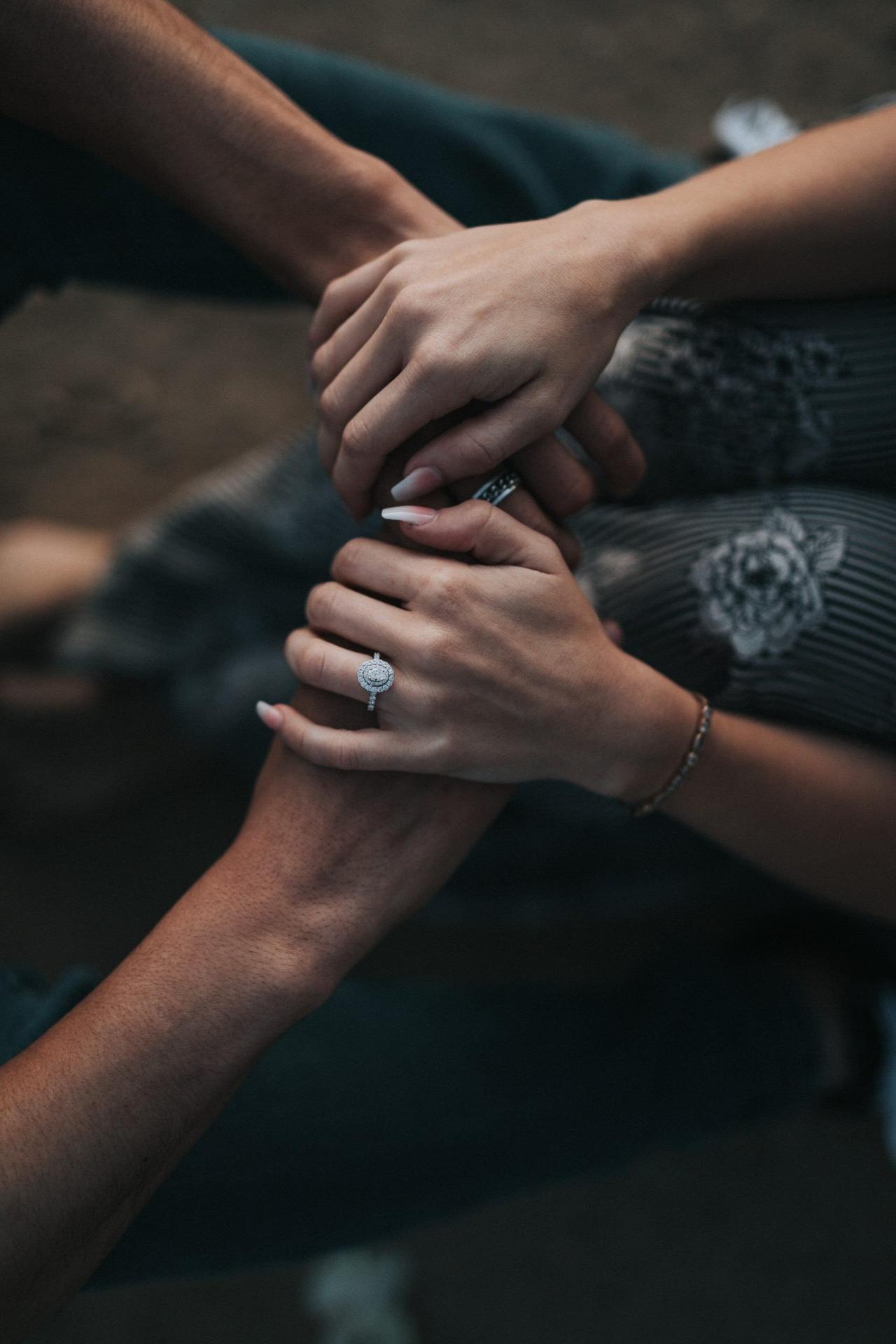
Dr Tang also points out that it’s important to recognise that you are dealing with an emotional loss. ‘Loss is defined as having something and not having it anymore – and it also refers to the emotion of grief – a response to the absence of something that was of value.’
The key stages of grief include:
- Shock and denial
- Pain and guilt
- Anger
- Bargaining
- ‘Depression’, reflection, loneliness
- Reconstruction and working through
- Acceptance and hope
‘It is natural to feel all of those emotions – they may come quickly, slowly, and at different times to your partner,’ she observes. ‘It may be worth being aware that you and your partner may also have different reactions. For example, just because they are not showing their emotions in the way that you are, it doesn’t mean they aren’t feeling them. Men do have a tendency to withdraw and women to express – and misunderstanding these responses as “you don’t care”, or “you care too much” can be unhelpful – take the time to observe and understand each other’s responses.’
READ MORE: How To Host a Virtual Hen Do During Lockdown
How to Support Your Partner If They’re Struggling to Cope with Postponing Your Wedding
‘The worst thing you can do is tell them they are overreacting, being oversensitive or taking things out of proportion,’ says Dr Ben-Ari. ‘This type of a reaction will only trigger more anxiety, a sense of loneliness and a defensive response.
‘Instead, really listen to them and validate their point of view. You don’t have to agree with them, but acknowledge the situation from their point of view and tell them that they make sense. Do not try to fix how they feel or tell them what they need to do to overcome it.
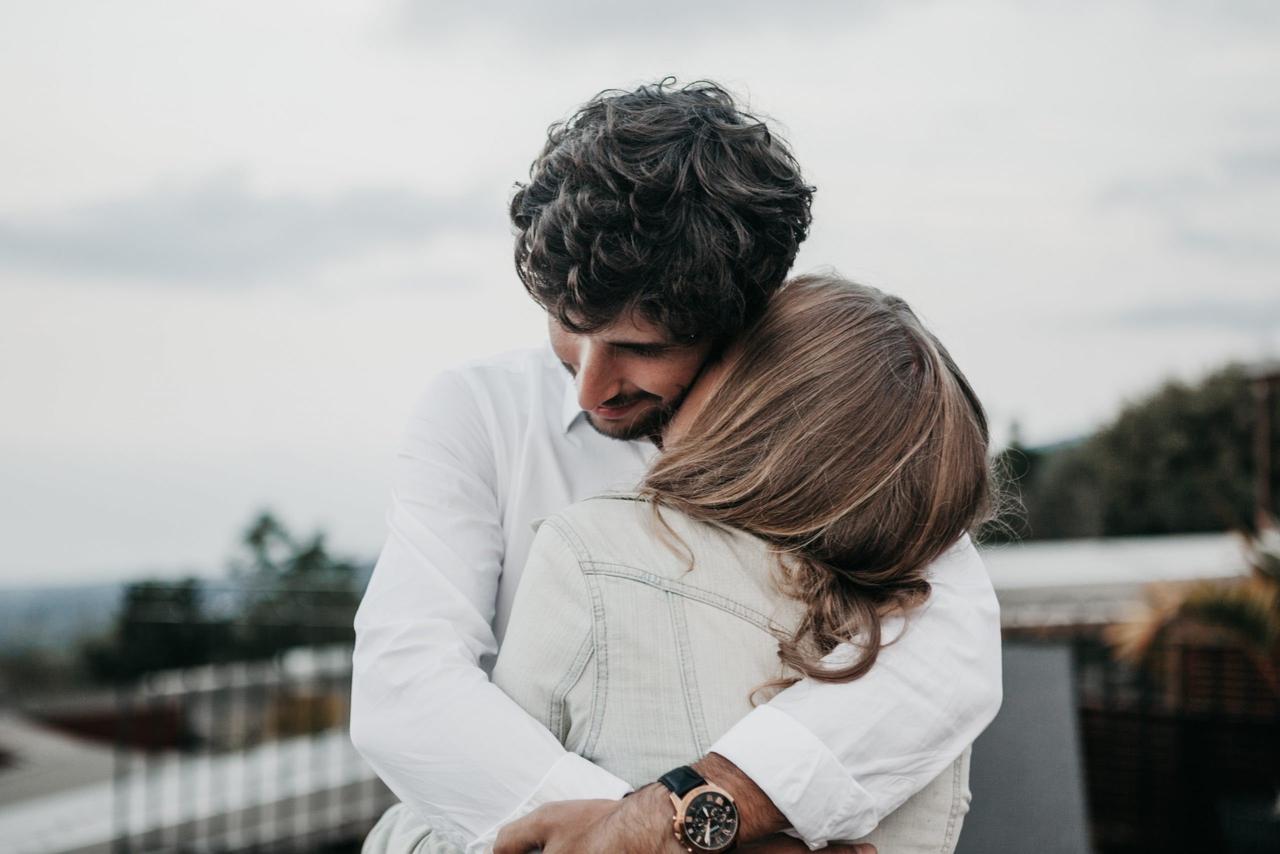
‘After listening fully and giving them validation, empathise with their feelings, and ask them how you can help. What do they need from you? How can you support them? A sentence like “I can understand that you feel frustrated and sad about postponing the wedding. It feels like a lot to take on in addition to everything else right now. How can I support you this week? What do you need from me that might ease your stress?”’
Useful Things You Can Do to Help You Cope with Having to Postpone Your Wedding
Reach out for social support. ‘We all have friends and family who can overwhelm us with their negativity, and others who support us – who after a conversation, make us feel lighter and more optimistic,’ says Dr Ben-Ari. ‘Extend your interaction with a supportive circle. There are many couples in the same situation so think about joining or creating an online group with like- minded people. A great circle of support and advice can come from people who struggle with the same issue.’
Tell your partner what you need from them at this time. ‘Rather than assuming they can read your mind or will know how to be there for you, show them how to make you feel supported and cared for,’ she adds. ‘People are much more aware of what they don’t want rather than what they do want, which tends to lead to what they don’t want becoming the reality. Let your partner know how you’re feeling and tell them exactly what you need from them using positive words. For example, instead of saying “You don’t understand me, stop telling me what to do”, say “I feel stressed and lonely today. I need to just talk and it will be helpful if you can just listen, hug me and tell me everything will be okay”. This is a great opportunity to build the foundations for how to support each other and cope with stressful events, which is an inevitable part of life.
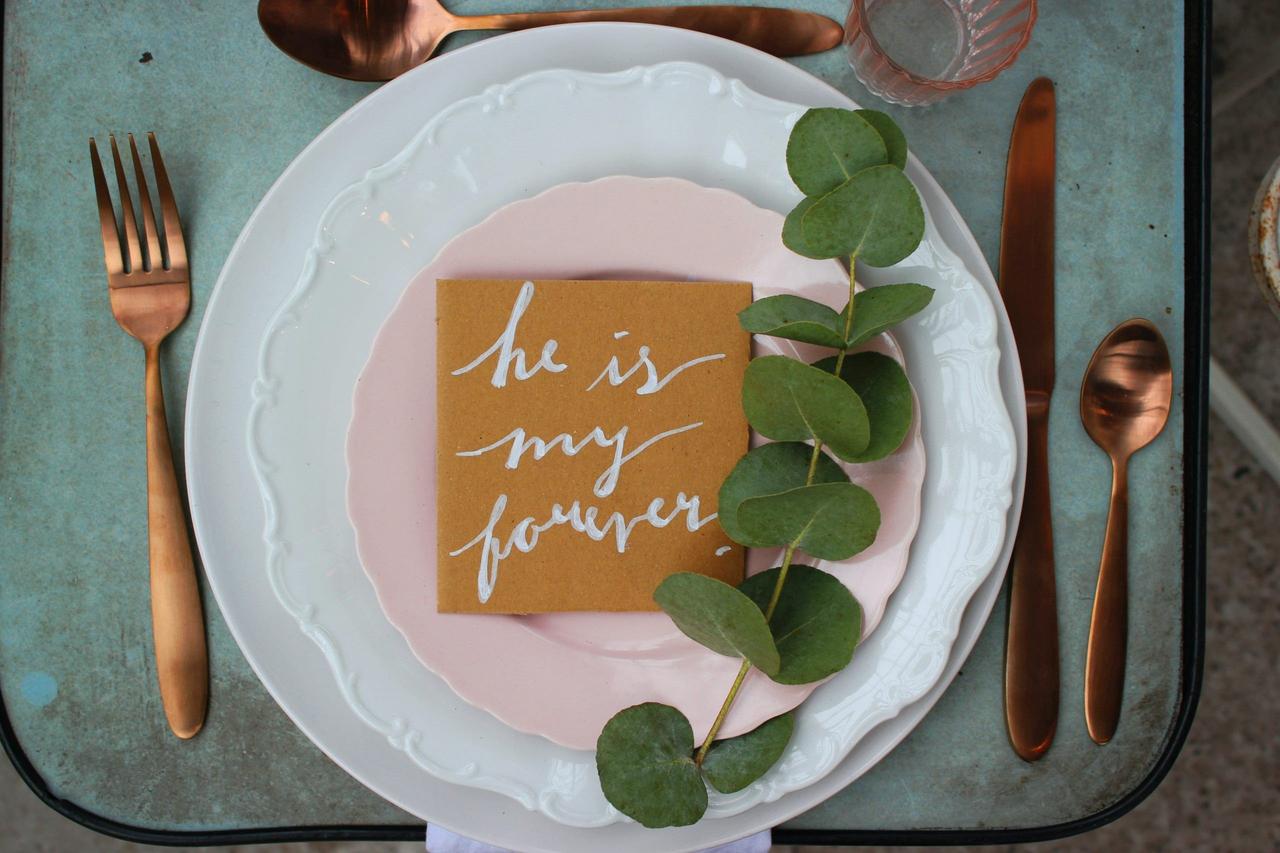
Be kind to yourself. Dr Tang notes the importance of treating yourself gently during this difficult time, and this should not be underestimated: ‘Remember that sadness, like most things in life, is temporary, and while you might feel happy, a wave of sadness can hit you unexpectedly, or while feeling sad you may suddenly smile. Accept your sadness and remember it’s ok to be happy too. There’s no timeline – there’s not “should”.’
Change your environment. Far-flung travel may be off the cards for the foreseeable, but you can still make a change: ‘This is very powerful, and just because you cannot do it physically doesn’t mean you cannot do it mentally,’ Dr Tang explains. ‘Consider switching off for 24 hours. Speak to people about non-wedding-related things. Watch something that makes you laugh.’
READ MORE: #WedminFromHome: 17 Tasks To Tick Off Your To-Do List During Lockdown
Find a creative outlet. It might be writing, painting, singing – anything that helps you use your brain for something other than worrying about your wedding, and what would have been. Or, if you are able to think about the wedding constructively, Dr Ben-Ari notes that one thing is for sure – you now have more time to plan. ‘Is there something you wanted to do but ran out of time to plan?’ she asks. ‘Maybe a fun movie about both of you to screen at the wedding, or to perform a dance together. Here is your opportunity to be super creative and use the extra time to your benefit.’
Celebrate the day! Both experts recommend marking your previous date in a significant way: have a nice dinner together, take pictures, create a Zoom party for your nearest and dearest to raise a toast. You could surprise your partner or plan it together. If you’re stuck for inspiration, fear not – we’ve got lots of creative ideas to help you celebrate your original wedding date.
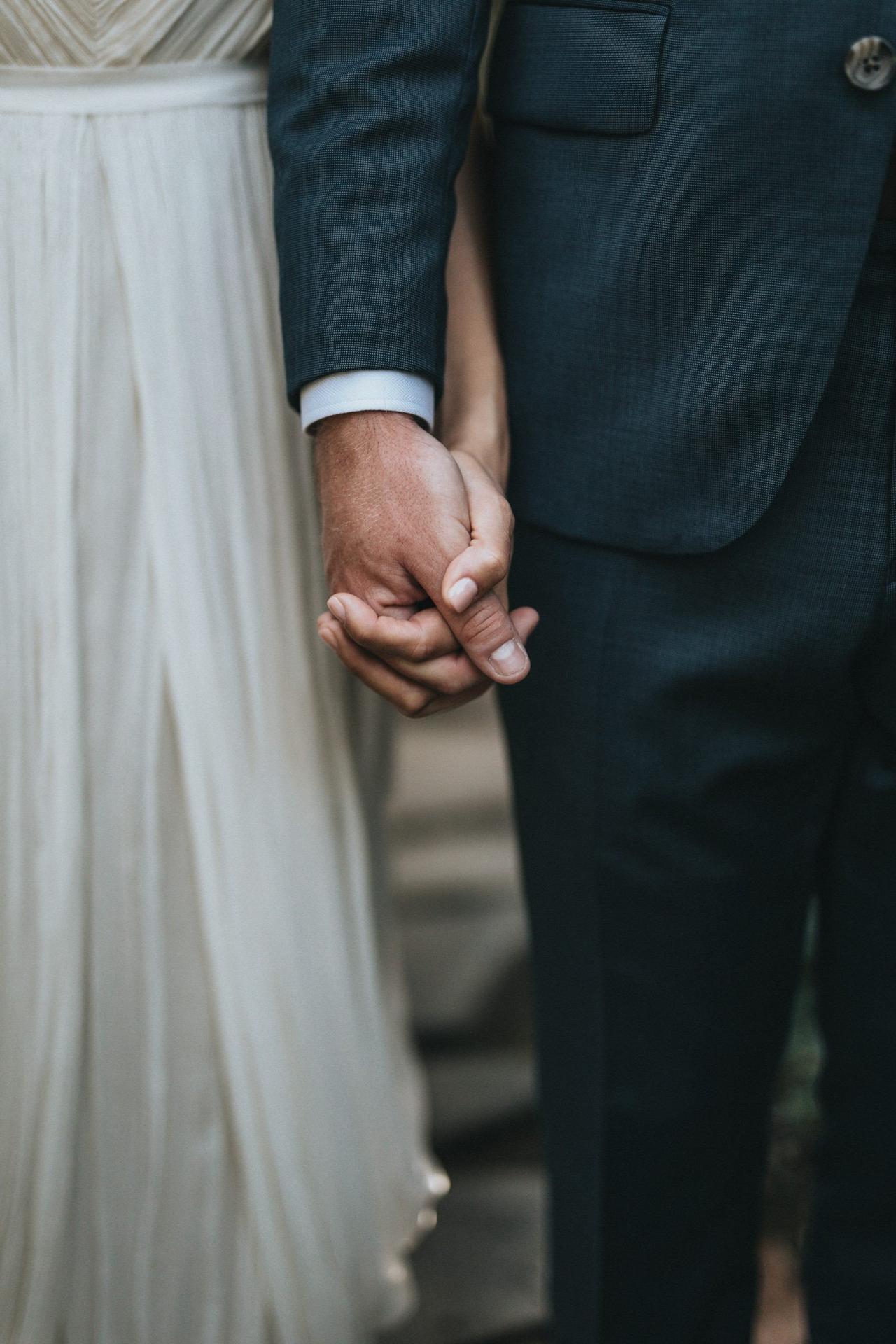
Think about the big picture. ‘You and your partner are healthy. You will get married, even if it is not at the time you had originally planned or wanted, and you have the rest of you lives to enjoy being married,’ emphasises Dr Ben-Ari. ‘Think about the things in your life that make you feel grateful. Make a list, and everyday add more and more things to it. Every day is a miracle – remember that and try to connect with a sense of gratitude.’
Look to the future. ‘Think about 10 years from now,’ she continues. ‘What is the story you would like to tell your children about this time? How did you cope as a couple? What came out of this situation? How did you work together as a couple to overcome this challenge? Once the story you want to tell your children is clear, it will become your vision for this year. Ask yourself every day how you will need to behave to be in line with this story of yours.’ You could even keep a lockdown diary to remind you of how you got through this time with strength and resilience.
READ MORE: 21 of the Biggest Wedding Trends for 2021
You should try not to:
- Numb the pain through ineffective self-medication, like drug, alcohol or even comfort eating
- Be afraid to cry and show emotion, or pretend to be ok with it
- Hold it all in
- Speak to people who are not compassionate – no matter how close
- Hold onto regrets
- Keep too many ‘It would have been’ thoughts – remember that you can ‘still have’
‘Remember that it is a day – and your relationship is far more meaningful that that,’ Dr Tang concludes. ‘Sometimes practicing gratitude – not in comparison to anything but simply for its own sake, can help.’
‘If stress levels are high and you feel it is affecting the quality of your life and relationship, reach out for professional support,’ suggests Dr Ben-Ari. ‘With the guidance of a therapist you can learn new ways to overcome challenges, to make sense of things and to learn communication skills that will help you express what you need from your partner in a way they will be able to understand and accommodate.’
Dr Audrey Tang is a Chartered Psychologist, CPD Accredited speaker and trainer. She is the author of The Leader’s Guide to Resilience due out in late 2020. (prev. The Leader’s Guide to Mindfulness (Pearson & FT, 2018). Follow her on Twitter and Instagram @draudreyt
The Ready for Love courses by Dr Kalanit Ben-Ari are available at readyforlove.today.

